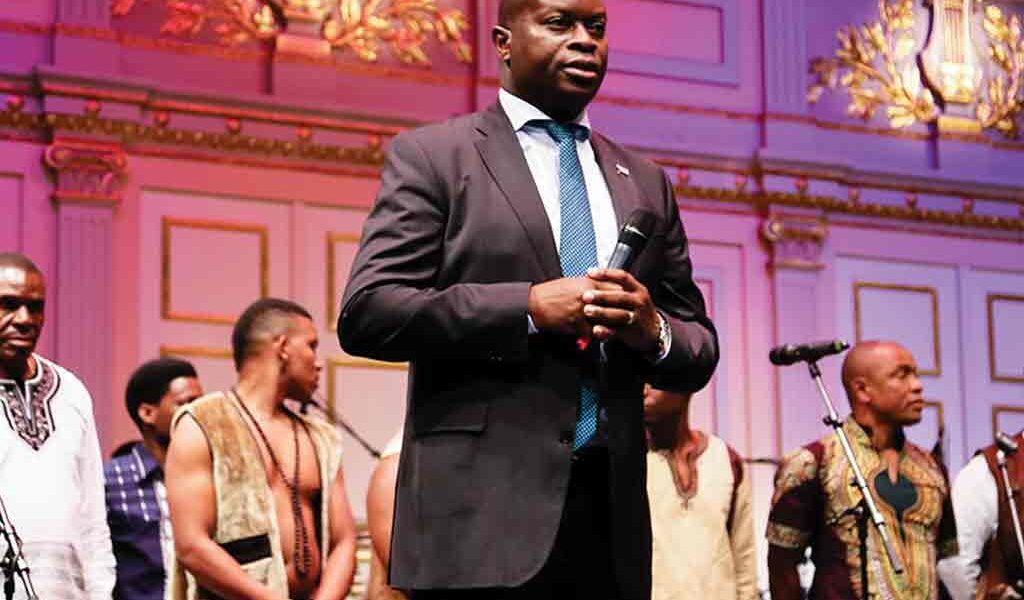SONNY SERITE
Employees in Botswana’s foreign missions have been found to be living in the lap of luxury at the taxpayer’s expense and according to the report of the Auditor General for the financial year which ended 31st March 2016, released three months ago, the misuse of public funds is extensive.
For instance, at the Addis Ababa embassy in Ethiopia embassy, two locally recruited staff members were treated to a 10-day familiarisation tour of Botswana, with each getting a P11 992 imprest. However, in addition to the imprests drawn, they had also submitted claims totalling P19 594 for 3 nights’ accommodation in Kasane as well as food, drinks, return flights between Kasane and Gaborone, game drives and boat cruise, which the Auditor General described as ‘‘matters of personal choice and leisure’’.
Auditor General Pulane Letebele wrote in her report that ‘‘In my view, the payment of these expenses amounted to an all-inclusive holiday paid for by government, which is not the object of the concession’’. Apart from the all-expenses paid holiday to Botswana for the two officers, Letebele reported that a scrutiny of the vouchers relating to travelling imprest claims by embassy officers had revealed instances where, in addition to the per diem allowances drawn, officers had also submitted claims for incidental and other expenses. It was also noted that mission vehicles were used, in other instances private taxi cabs hired, for the transportation of officers (other than Head of Mission) between office and their residences. This had resulted in drivers working long hours which attracted overtime claims. It was further noted that children of officers were transported to school using official transport. ‘‘It is my understanding that all these are for the account of the officers concerned, and not government’’, the Auditor General highlighted in her report.
The Auditor General noted that children of officers were also transported to and from school at the Botswana tax payer’s expense at the High Commission in Abuja, Nigeria- something she remarked should be the responsibility of parents. ‘‘I have still not obtained the Accounting Officer’s definitive ruling in the context of this mission, despite my specific request for this, nor his endorsement of the Head of Mission’s version relating to security issues in Abuja’’, she noted in the report.
Letebele raised inquiries regarding the possible misuse of the free medical facility by the locally recruited staff who were running monthly regular medical bills and said the Head of the Mission singled out one case which he said was a complicated pregnancy, but did not comment on other cases which had been drawn to the attention of the Accounting Officer. She highlighted that the explanation that Nigeria is full of tropical diseases, such as typhoid and malaria, and staff would therefore require monthly check-ups is not plausible as a national preoccupation. The report also questions the sale of 3 boarded vehicles at the Botswana Mission in Nigeria through questionable dispensation. She said an attempt, in February 2016, to sell the 3 boarded vehicles by auction was not successful as the set reserve prices were reportedly too high. The Head of Mission later confirmed that the vehicles have since been disposed of by auction sale.
‘‘However, our scrutiny of the sale documents has indicated all these vehicles were bought by locally recruited members of staff of the mission. While locally recruited staff may not have been prevented from participation in an auction sale, but the fact of all 3 vehicles having been bought by them, raised the question of the circumstances of the auction sale which resulted in that unlikely event’’, the Auditor General raised her suspicions.
She also pointed out that she was still to receive confirmation that the Immigration and Citizenship System was repaired and brought into use. ‘‘The system was installed in December 2011 for the recording and processing of visa applications, but has never functioned since then to-date. For his part, the Head of the Mission alerted the Director of Immigration and Citizenship to this state of affairs as far back as 2013, but nothing has been done to bring the System to functionality, rendering the expenditure on the purchase of that System nugatory,” reads the Auditor General’s report.
In Nairobi, Kenya, the Auditor General pointed out that arising from the audit of the mission accounts in 2011, she had raised comment about the regular use of a particular taxi service provider alongside mission vehicles, to which the Accounting Officer had responded that this was necessitated by the poor conditions of mission vehicles which needed to be replaced. In the year under review, 5 years later, she noted that the same taxi service provider was still being used which raised questions about the current condition of mission vehicles, given the earlier response of the Accounting Officer and what action he proposed to take to resolve this matter.
In Stockholm, Sweden the Auditor General found that the mission had spent a total of, at least, P445 287 on 2015 Botswana Day Celebrations, where 400 guests were hosted at an official reception. As with other embassies, the Auditor General raised the question over transportation of officers’ children to and from school. In the case of Sweden, she noted regular overtime claims by drivers connected with the transportation of children to school.
In Maputo, Mozambique, the Auditor General also raised concerns over the transportation for children of officers to and from school using official transport- an expense she said should be borne by parents involved. A scrutiny of the mission vouchers had indicated regular monthly overtime claims by drivers for transporting children to school.

